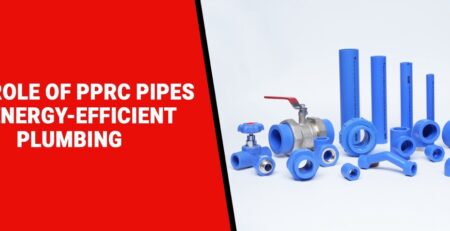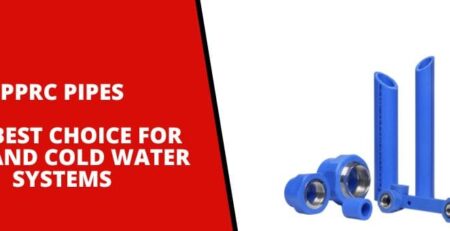Comparing HDPE and uPVC Pipes: Which One Suits Your Needs?
When it comes to home plumbing, choosing the right type of pipe is crucial for ensuring durability, efficiency, and long-term performance. Two of the most popular options in the market today are HDPE (High-Density Polyethylene) and uPVC (Unplasticized Polyvinyl Chloride) pipes. Both offer distinct advantages and are used across various residential, commercial, and industrial applications. But which one is better for your plumbing needs? In this blog, we’ll dive deep into the differences between HDPE and uPVC pipes, their benefits, and which might be the best fit for your home or project.
What are HDPE and uPVC Pipes?
HDPE Pipes:
HDPE pipes are made from high-density polyethylene, a thermoplastic polymer known for its flexibility, toughness, and resistance to chemicals. These pipes are ideal for water supply, gas distribution, sewage systems, and irrigation. One of the standout features of HDPE is its ability to withstand ground movement and pressure, making it suitable for underground installations.
uPVC Pipes:
uPVC pipes are made from unplasticized polyvinyl chloride, which means they don’t contain plasticizers—additives that make plastic flexible. As a result, uPVC is rigid, strong, and durable, commonly used in cold water plumbing, drainage systems, and cable conduits. These pipes are lightweight, easy to install, and offer excellent resistance to chemical corrosion.
Key Differences Between HDPE and uPVC Pipes
Aspect |
HDPE Pipes |
uPVC Pipes |
| Flexibility | Highly flexible; ideal for curved layouts and underground movement. | Rigid and less flexible; suitable for straight installations. |
| Jointing Method | Butt welding, electrofusion, or compression fittings. | Solvent cement or threaded fittings. |
| Temperature Resistance | Can handle a wider range of temperatures (−40°C to 60°C). | Performs best in moderate temperatures (0°C to 60°C). |
| Pressure Rating | Higher pressure tolerance; ideal for water mains and gas lines. | Moderate pressure handling; ideal for low to medium pressure systems. |
| Corrosion Resistance | Excellent resistance to chemicals, saltwater, and microbes. | Also corrosion-resistant but less suitable for aggressive chemicals. |
| Lifespan | 50+ years with minimal degradation. | 40–50 years with proper installation. |
| Installation | Requires welding equipment or specialized fittings. | Easy to install; ideal for DIY or low-skill installations. |
| Environmental Impact | Recyclable and environmentally friendly. | Recyclable, though less sustainable than HDPE in some applications. |
This table highlights the core technical and practical differences to help you choose the pipe that suits your needs best.
Which Pipe is Better for Your Plumbing Needs?
For Underground Water or Sewage Systems:
HDPE pipes are the ideal choice thanks to their flexibility, leak-free fusion joints, and resistance to soil movement. Their strength and adaptability make them perfect for complex or buried systems.
For Residential Plumbing or Drainage:
uPVC pipes are excellent for internal water supply and drainage systems due to their affordability, ease of installation, and rigid strength. They’re particularly well-suited for homes and low-rise buildings.
For High-Pressure Applications:
HDPE pipes offer better pressure handling, making them more suitable for municipal or industrial projects where high water pressure or gas flow is involved.
For Cost-Effective Installations:
uPVC pipes are generally more budget-friendly and easier to install, making them a practical choice for straightforward plumbing systems with low to moderate pressure requirements.
Where to Get Premium Quality HDPE and uPVC Pipes?
At Nepro Pipes, we pride ourselves on offering industry-leading piping solutions tailored to your exact needs. Our range includes high-quality HDPE and uPVC pipes that are manufactured to international standards for safety, performance, and durability. Whether you’re working on a residential water system, irrigation network, or industrial infrastructure, we have the right product and technical support to help your project succeed.
Final Verdict
Both HDPE and uPVC pipes serve unique purposes in plumbing and infrastructure. If you’re dealing with underground, high-pressure, or chemically exposed systems, HDPE pipes offer unmatched reliability and flexibility. On the other hand, for internal plumbing, drainage, and cost-sensitive projects, uPVC pipes provide an efficient and easy-to-install solution.
By understanding the specific advantages of each, you can make an informed decision that ensures the performance and longevity of your plumbing system.
Visit Nepro Pipes today to explore our complete range of HDPE and uPVC piping solutions. Our team is ready to help you choose the right products for your application—with the quality and reliability that Nepro is known for.










Leave a Reply